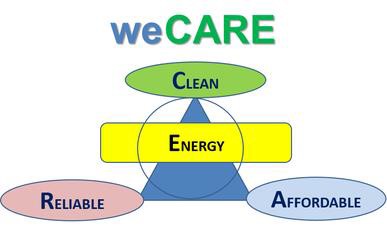
5 September 2022
ZeitenWende für EnergieWende:
Time to revise the Green Deal Energy Policies
(Message from civil society to Member States for the Energy Council meeting on the 9 September in Brussels)
The energy crisis of recent months, worsened by the war in Ukraine, is leading to an unsustainable increase in energy prices and a serious risk of energy shortages for the next months and even years. This crisis, combined with the impacts of droughts, forest fires and storms resulting from Climate Change, originating from GHG emissions, is seriously affecting the European people. Social consequences are there already and will be exacerbated. Social unrest may be at our doorstep. Providing short-term relief packages at national level, agreed at EU level, will not solve the issue. In the end these will increase debts which will have to be repaid sometime. Instead, structural changes are needed. It is time to revisit fundamentally the way the Climate/Energy issue has been tackled over the last 20+ years, to recognise the mistakes that were made, even if involuntarily, and redesign policy, keeping the well-being of European society at the centre of attention.
weCARE has been right from the outset to claim the need to have a wider global approach to the energy problem. Numerous letters have been sent to the EU Institutions, Commission, Council and Parliament, asking them to properly consider the three pillars of a socially sustainable energy policy: environmental protection AND economics AND reliability of supply. Energy needs to be clean, affordable and reliable to be sustainable from a societal perspective. And it is the energy mix as a whole, as a system, which needs to be balanced between the three pillars.
Over past decades, the green dogma has been driving Climate/Energy policy making at EU level. While the European Commission is at the origin of proposals in this field, the Council and the European Parliament have a shared responsibility when amending and accepting policies.
The German model of this “green” policy, the EnergieWende, is a failure, as is demonstrated today: no reduction in the carbon footprint (replacing nuclear by dirty coal), very high costs and prices (500 billion euros in subsidies for renewables over 20 years), overdependence on unreliable sources (gas from Russia via Nord Stream combined with the intermittency of renewables).
It is time for a change, a ZeitenWende, in Germany, but even more importantly at EU level. Calling on the solidarity clause, in particular to help Germany to overcome their present problems, can only be acceptable if, at the same time, there is a clear signal to drastically change the way Climate/Energy policies are designed and implemented. Policies must be based on sound scientific and technical ground, not on dogma and illusions.
Going back to fundamentals, it is necessary to reduce the carbon footprint of energy production and use, while at the same time keeping costs and prices in check and ensuring the reliability of supply.
For this, weCARE proposes:
- to keep only the decarbonisation target (binding at EU and national level), and to abandon the Green Deal renewables target (i.e. not to mix the decarbonisation target with the means of reaching it), leaving to the Member States the responsibility to define their way to decarbonise. It would also make sense to requalify the figure of 55% decarbonisation for 2030. While this should stay the ambition, it might be overly optimistic as a binding target to be reached in eight years from now. The policy needs to be ambitious to be the driver for action. But the binding target much be reachable to be credible for action to take place.
- to revisit fully the electricity market, ensuring an equal treatment of all low-carbon sources, while keeping the balance of the three pillars: clean, affordable and reliable electricity. The market as it has been designed is not delivering at a time when significant capital-intensive investments are needed – especially when higher electrification is desired. In addition, a “market” mixing apples and pears, large centralised dispatchable plants driven by the demand, with small decentralised intermittent and non-dispatchable installations driven by the offer, cannot be a true market. It is time to reconsider electricity as a common good at the service of society and to design the electricity system to deliver electricity when needed at a price that is commensurate with the average cost of production. The cheapest ways of producing clean and reliable electricity need to be promoted, considering all the costs at system level. These should then visibly lead to a reduction of the electricity price.
- to restore wide European support for nuclear energy as a decarbonised, safe, clean, affordable and reliable source of electricity and heat. The Euratom Treaty is the European legal base for this. Member States can for sure decide not to rely on nuclear energy, but they should not be able to prevent other Member States from legally doing so. That is also “solidarity”. And the most urgent action in the current crisis is to keep all existing nuclear plants in operation, as long as the safety authorities approve.
We remain at your disposal for any further information/interaction you would like to get from/with weCARE.
Yours faithfully,
Marc Deffrennes, Richard Ivens, Serge Crutzen weCARE
weCARE is a Brussels-based alliance of NGOs campaigning in Europe for Clean, Affordable and Reliable Energy. The weCARE website (https://www.wecareeu.org/) describes the aims and specific activities of the alliance and lists the current member organisations: Sauvons le Climat FR, Patrimoine Nucléaire et Climat FR, Terrapraxis UK, 100TWh BE, Ekomodernist FI, Jihocesti TatKove CZ, Institute for Sustainable Energy PL, 18for0 IE, European Association for Energy Security SK, Stichting Energietransitie en Kernenergie NL.
weCARE is listed in the EU Transparency Register under number 473723535459-78.





